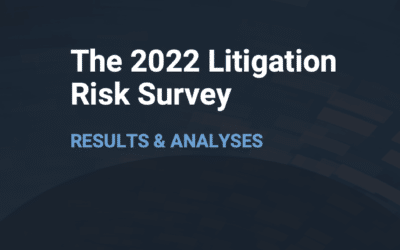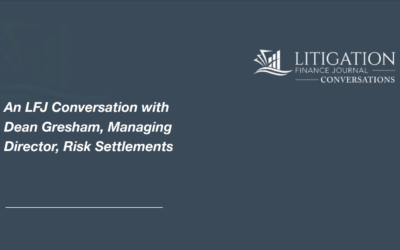Class action settlement agreements can be long and complicated. But sometimes it’s the simplest provisions—like one prohibiting mass opt-outs—that can pay dividends.
The Backstory
In July 2019, Equifax entered into a $700 million settlement agreement to resolve all consumer litigation arising out of its 2017 data breach, during which the personal information of 147 million people was exposed. Immediately thereafter, a lot of ink was spilled concerning the $125 benefit purportedly available for all consumers, regardless of whether those consumers were actually harmed. But one issue that largely flew under the radar involved the propriety of the settlement agreement’s provision prohibiting mass opt-outs.
Provision Prohibiting Mass Opt-Outs
Under the settlement agreement, to opt-out: “Each written request for exclusion must set forth the name of the individual seeking exclusion, be signed by the individual seeking exclusion, and can only request exclusion for that one individual.”
Class action settlement agreements can be long and complicated. But sometimes it’s the simplest provisions—like one prohibiting mass opt-outs—that can pay dividends.
Mississippi Lawyer Attempts Mass Opt-Out
One day before the opt-out deadline, a Mississippi lawyer named Jeffrey Hosford sent the settlement administrator, JND Legal a letter listing thousands of individuals purportedly seeking to opt-out. The letter was signed by only Mr. Hosford.
Two weeks before the final approval hearing, JND filed with the court a list of what it considered the valid opt-out requests. JND did not include the names of individuals listed on Mr. Hosford’s letter.
The Court Approves the Settlement
In December 2019, the court granted final approval of the settlement, issuing a written order a few weeks later. The final order barred all class members who had not opted out from “commencing, pursuing, maintaining, enforcing, or prosecuting, either directly or indirectly, any Released Claims in any judicial, administrative, arbitral or other forum.” It also wholeheartedly approved the provision prohibiting mass opt-outs, finding that it:
- “is not burdensome at all”;
- “ensures that each individual has carefully considered his options and understands that he is giving up his right to relief under the settlement”; and
- combats unauthorized mass opt outs.
But the story does not end here.
Mississippi Lawyer Starts Suing
In late 2019 and early 2020, despite all the above-mentioned developments, Mr. Hosford, on behalf of the “Mississippi Plaintiffs” (i.e. those individuals for whom Mr. Hosford tried—but failed—to opt-out of the settlement), filed 83 separate cases against Equifax in the Justice Court of Noxubee County, Mississippi. The complaints raised the same claims resolved in the settlement. According to Equifax:
Counsel for Equifax have repeatedly told Mr. Hosford…that the Mississippi Plaintiffs’ prosecution of Data Breach-related claims in state court violates the Final Judgment. Equifax has also filed motions to dismiss in 54 of the state court cases arguing that the Mississippi Plaintiffs’ claims are barred by the Final Judgment because they failed to properly exclude themselves.
In the state court actions, the Justice Court judge “permitted 31 of the Mississippi Plaintiffs to proceed with non-jury trials after which the judge entered judgments for each Mississippi Plaintiff in the amount of approximately $3,500 (the jurisdictional maximum in Justice Court).” Equifax appealed them all. In conversations with Equifax’s counsel, Mr. Hosford informed them that he intended to file over 4,500 additional cases in Justice Court.
Equifax Enforces the Settlement
All of this left Equifax with little choice but to file in the district court an emergency motion to enforce the Final Judgment and for an order to show cause. Basically, Equifax sought to enforce the Final Judgment by having the District Court issue an order requiring the Mississippi Plaintiffs to dismiss their state court actions with prejudice. And the District Court agreed.
In a September 16, 2020 ruling, the court found that all the Mississippi Plaintiffs “are Consumer Settlement Class Members who did not exclude themselves from the Settlement.” Accordingly, the court permanently banned the Mississippi Plaintiffs from pursuing their state court claims and ordered them to dismiss with prejudice all such actions, including those “in which judgments have already been obtained but are on appeal.”
The Lesson
When you are preparing your settlement agreement, it pays to remember that a provision prohibiting mass opt-outs is encouraged and enforceable.
Are you are looking to resolve a class on a claims-made basis? If so, contact us to learn how we can help you to mitigate, cap, and transfer the financial risk of settlements in existing class action litigation.







